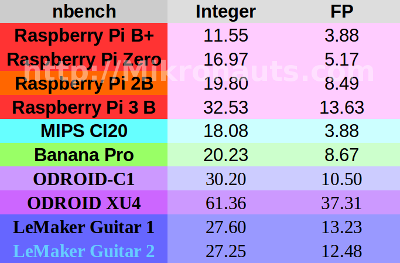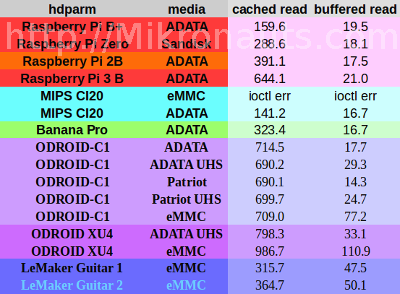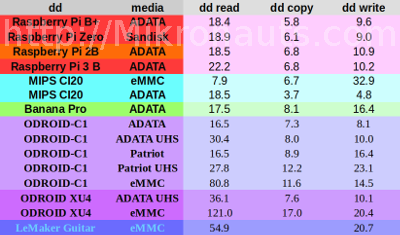Raspberry Pi 3 Model B Review
iperf client & server
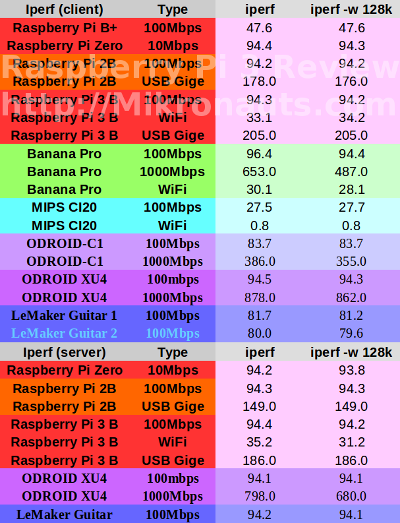
Results shown are in megabits per second
The Raspberry Pi 3 did very well with the on-board 10/100 Ethernet, and managed to do even better when a USB3 Gigabit Ethernet adapter was added (note it can only run at USB2 speeds here).
I almost did not provide WiFi numbers as WiFi performance will vary wildly based on channel congestion, signal strength etc.
For this test, I connected to a WiFi router on the other side of the house, and received better than expected results.
NBench 2.2.3
Results are an index relative to a Pentium 90 with 256KB L2 cache.
Raspberry Pi 3 had the second-best integer AND floating point performance – second only to the eight-core ODROID XU4.
The ODROID-C1 and LeMaker Guitar were not far behind.
Unix Bench 5.1.3
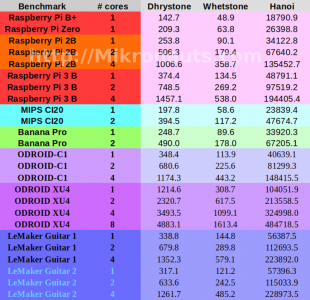
Results are an index relative to a SPARCstation 20-61 (rated at 10.0)
For Dhrystone, Raspberry Pi 3 came in second, only being bested by the ODROID XU4.
For Whetstone, Raspberry Pi 3 came in third after ODROID XU4 and LeMaker Guitar.
For Hanoi, Raspberry Pi 3 came in third after ODROID XU4 and LeMaker Guitar.
hdparm
Results are in megabytes per second.
The cached read hdparm test is basically a memory benchmark, and the buffered read gives a decent indication of large sequential reads.
dd
Results are in megabytes per second.
dd is a poor benchmark for server performance – but it can give a useful indication of maximum possible sequential read, write and copy speeds.
Mind you, I don’t really expect anyone to use a Raspberry Pi as a production server.
Article Index
- Introducing Raspberry Pi 3
- A Closer Look at Raspberry Pi 3
- Feature Comparison, Operating Systems
- Software Compatibility, Common Applications, Multimedia, Kodi
- Hardware Compatibility, Ethernet, WiFi, Bluetooth
- GPIO: WiringPi, pigpio, Add-On Board testing
- More testing: RoboPi, Pi Droid Alpha, SchoolBoard ][
- More testing: Pi Rtc Dio, Pi Jumper, EZasPi
- Benchmarks: Booting & Launching Apps, Compiling GNU Emacs
- More Benchmarks: iperf client & server, NBench, Unix Bench, hdparm, dd
- Power Utilization, Documentation, Support, Conclusion
